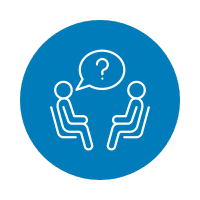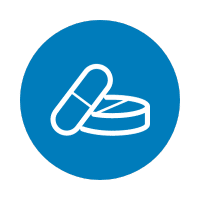Aftercare and Transition Care
Personalized Mental Health Care that Gets to the Root
Benefits of Aftercare and Transition Care

Develop independent living skills

Psychological testing

Family work, parent consultation

Case management

Individual psychotherapy

Medication targeting symptoms
Flexible Program Options
Each client is assigned a team of clinicians who will create a plan throughout their wellness journey at Mind Therapy Clinic. The multi-disciplinary team will create a plan at each phase of the recovery including transitional phases. The programming may include supportive housing, extra case management, or additional therapies or somatic treatments such as TMS or a combination, e.g. Ketamine-Assisted Psychotherapy.
Benefits of Aftercare and Transition Care

Develop independent living skills

Psychological testing

Family work, parent consultation

Case management

Individual psychotherapy

Medication targeting symptoms
Group Therapy
Therapy Groups
Anxiety Therapy
Upcoming eventArt Therapy Group
Upcoming eventAuthentic Relating Group
Upcoming eventCognitive Behavioral Therapy
Upcoming eventCoping with Triggers
Upcoming eventDepression and Loss Group
Upcoming eventDistress Tolerance Group
Upcoming eventEmotion Regulation Skills
Upcoming eventEmotions and Compulsions
Upcoming eventFamily and Relationship Issues
Upcoming eventGoals Group
Upcoming eventHealthy Living Group
Upcoming eventIdentity Group
Upcoming eventIncreasing Connection
Upcoming eventInterpersonal Effectiveness Skills
Upcoming eventMen’s Psychotherapy Group
Mindful Process Group
Upcoming eventMindfulness Skills Group
Upcoming eventPost-Traumatic Growth
Upcoming eventRestorative Movement Yoga
Upcoming eventSelf Compassion Group
Upcoming eventStress and Addiction Group
Upcoming eventTaking Charge Group
Upcoming eventThe Next Right Thing
Upcoming eventWomen’s Psychotherapy Group
Upcoming event
FAQs
Intensive Outpatient and Partial Hospital Programs are treatment programs designed to assist individuals in achieving their mental health and recovery goals by providing intensive interdisciplinary care and structure under one roof. These programs are designed to assist those in need of more than weekly therapy and psychiatry visits, but less than hospital or residential care. People can engage in these programs while living at home, in a sober living house, or in a supportive community living environment.
Eligibility for the IOP or PHP is determined by an initial clinical assessment, which is completed in the admissions process. This assessment informs the initial recommendation for the level of care and the types of groups and therapies our clinician believes will be most effective. Our programs vary in intensity so that we can support you more comprehensively when you are in need of stabilization and structure, then work with you to taper your care as you get back to the life you want to be living. Our programs are customizable and clinician-crafted with your evolving treatment needs in mind.
These programs help people struggling with
- Psychiatric symptoms such as depression, anxiety and extreme mood problem
- Substance abuse
- Behavioral issues such as social anxiety, peer difficulties, impulsivity and impaired academic performance
- Difficulty moving forward into mature adulthood
- Disordered eating including distorted body image
- Low self-esteem, self-harm, suicidal thinking
- Family distress
- Interpersonal and childhood trauma
Here is a quick quiz to see if IOP or PHP would be right for you. Take IOP Quiz.
The average length of the IOP/PHP is three months; however, the length of the program is truly determined by your personal treatment goals. We often work with individuals as they step down from PHP to IOP to standard outpatient care over several months. Our clinic was founded on the principle that people should continue to be able to work with the groups and providers that are most helpful to them – that is why we offer a full spectrum of services from general outpatient care through PHP. The minimum length of the IOP/PHP is one month.
One of the things that makes the IOP at Mind Therapy Clinic unique is our ability to customize the program to truly fit your treatment goals and your schedule. We offer more than 20 groups per week and several different treatment approaches for individual, couples, and family therapy. Our pre-admissions assessment is designed to help our clinicians pick the treatment program and treatment team that is right for you.
Mind Therapy Clinic’s programs are out of network, so the cost of the program varies based on your insurance plan’s out-of-network behavioral health benefit package. Part of the pre-admissions assessment and ongoing IOP/PHP care includes assistance in navigating these benefits. After your first call to the clinic, our Finance Director will run a Verification of Benefits (VOB) to give you an estimate of the insurance coverage and out-of-pocket costs. To learn more about the program costs, reach out to our finance department.
At Mind Therapy Clinic we have clinicians who practice many different types of therapy including Cognitive Behavioral Therapy (CBT), Dialectical Behavioral Therapy (DBT), Acceptance and Commitment Therapy (ACT), psychodynamic therapy, relational therapy, among others. We also have clinicians with expertise in working with specific kinds of problems, like depression, anxiety, substance use, or trauma.
Part of the pre-admissions assessment involves understanding what has worked best for you in the past, as well as what has not been helpful for you. We will then do our best to pair you with a treatment team best suited to work with you on your goals for treatment.
After many months of trying to wait out the pandemic, we know that things will never go back to exactly the way they were. That said, we also know how important the community component of group care is and we are eager to get back to that in as safe a way as possible. You will be able to enroll in any live group as an outpatient, a fully live 3-day IOP program, or a hybrid 4- or 5-day IOP program with a mix of live and virtual groups. You can see our group schedule.
For general information, please contact Mind Therapy Clinic Reception:
Email: info@mindtherapyclinic.com or Phone: (415) 945-9870
